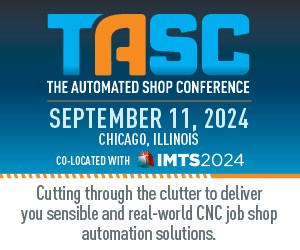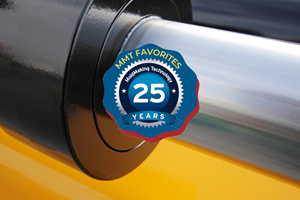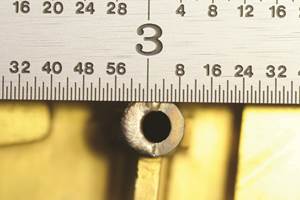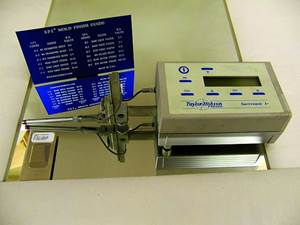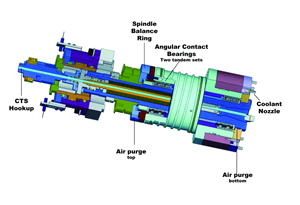More Related Technical Instruction Justification
Finding, Training & Retaining Employees, Part 8
In the previous two articles, we summarized some common Related Technical Instruction (RTI) that can be used for an apprenticeship program. In this installment, we will make some final recommendations as to what may be good courses for apprenticeship RTI.
CNC Classes. All apprenticeship programs in moldmaking should include CNC machining. All personnel need at least a “100-level,” basic course, and it is recommended that moldmaker apprentices take up to at least 200-level CNC classes. Whether a person is going to be running a CNC or not, he or she must possess a certain CNC competency level, at least for the sake of interdepartmental communications. It is important that a moldmaker not only understand the basics of G code and the Cartesian Coordinate System, but also some of the design configurations and capabilities of various styles of CNC machines.
If the apprentice is specifically a CNC machinist apprentice, s/he needs to complete the entire series of courses—from CNC basics to machining process development, fixturing and programming strategy. The program’s goal is that s/he is able to speak competently with all CNC supplier representatives and provide intelligent input into process improvements.
Moldmaking Classes. It is also recommended that everyone achieve some level of formal moldmaking instruction. CNC machinists should reach at least as high as a 200-level class. They need to comprehend what a part is and how it mates or interacts with other components of the mold. This is necessary to determine surface finish and to understand part tolerances. This level of knowledge can dramatically impact machining efficiency and strategy. Naturally, if an apprentice is working as a moldmaker, designer or engineer, s/he should have as much formal schooling in plastic mold design as possible.
Personal Development/Life Skills. Life skills is one category of skill deficit that comes to the forefront of every shop discussion around apprentices. Today’s generation often lacks sufficient understanding of an employer’s expectations in regards to personal accountability, work ethic, dependability, maturity and teamwork. To take this problem head-on, enroll new employees in communication, leadership and basic financial management classes. A popular course is “Shop Floor Culture & Expectations,” which covers these topics.
These classes serve as recommendations for you when designing the RTI for your apprenticeship program. The key is to create a program that is challenging, fun and rewarding for everyone. Train your employees with this end in mind: making them the best employee possible.
Related Content
How to Correctly Size a Hydraulic Cylinder
This week Randy shares steps for correctly sizing a hydraulic cylinder on a mold.
Read MoreLaser Welding Versus Micro Welding
The latest battle in finely detailed restoration/repair of mold materials.
Read MoreSurface Finish: Understanding Mold Surface Lingo
The correlation between the units of measure used to define mold surfaces is a commonly raised question. This article will lay these units of measure side by side in a conversion format so that companies can confidently understand with what they are dealing.
Read MoreMachining Center Spindles: What You Need to Know
Why and how to research spindle technology before purchasing a machining center.
Read MoreRead Next
Finding, Training & Retaining Employees
In this multi-part series of articles, contributor Ryan Pohl, a journeyman CNC machinist who also holds a master's degree in industrial training and development, addresses the skilled-labor shortage and its potential to dramatically hinder the future sustainability and growth of the moldmaking industry.
Read MoreHow to Use Strategic Planning Tools, Data to Manage the Human Side of Business
Q&A with Marion Wells, MMT EAB member and founder of Human Asset Management.
Read MoreAre You a Moldmaker Considering 3D Printing? Consider the 3D Printing Workshop at NPE2024
Presentations will cover 3D printing for mold tooling, material innovation, product development, bridge production and full-scale, high-volume additive manufacturing.
Read More











